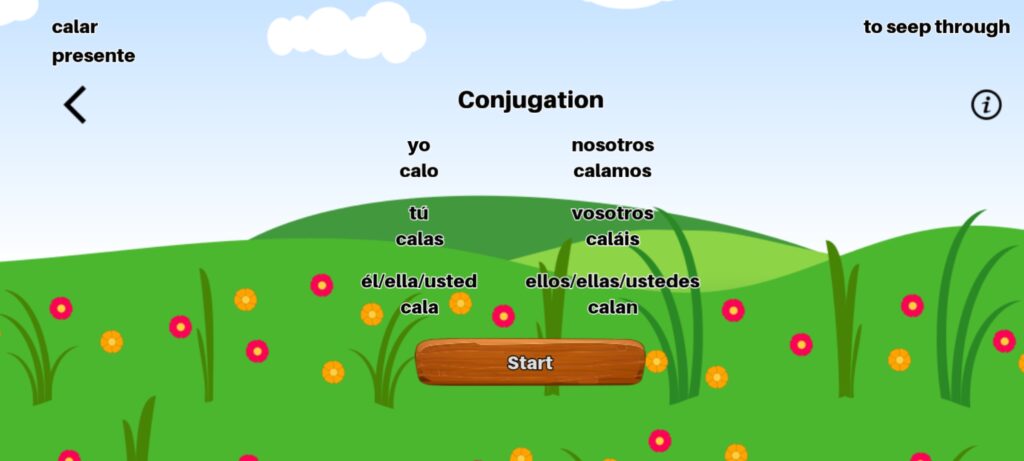Hola, Conjugation Champions!
Welcome to today’s edition of your daily Spanish conjugation blog! Today’s verb is calar, which means “to seep through.” This verb is perfect for describing situations where something slowly penetrates or permeates a surface or material. Let’s dive into its conjugation, uses, and some practical tips to master it.
Definition and Meaning
Calar: To seep through, to penetrate or saturate, often used for liquids or emotions.
Example: El agua comenzó a calar las paredes. (The water started to seep through the walls.)
Present Tense Conjugation

Usage Tips
- Describing Liquids: Use “calar” when talking about liquids seeping through surfaces, such as water through walls or clothes.
- Metaphorical Uses: Apply it in situations where emotions or feelings permeate a person’s mind or heart.
- Pronunciation: Stress the second “a”: ca-LAR.
Sentence Practice
- Present Tense: La lluvia cala mis zapatos. (The rain seeps through my shoes.)
- Preterite Tense: El aceite caló el papel. (The oil seeped through the paper.)
- Imperfect Tense: Siempre calaba mis notas con sus críticas. (He always seeped through my notes with his critiques.)
Quiz of the Day
Translate the following sentences into Spanish using “calar”:
- The coffee seeped through the filter.
- Her sadness began to seep through her cheerful facade.
- We used to let the paint seep through the fabric for art projects.
(Answers at the bottom of this post!)
Keep seeping through, keep learning, and keep refining those Spanish skills! Every verb you master brings you one step closer to fluency. ¡Hasta mañana!
Stay tuned for tomorrow’s verb and enjoy your day!
Saludos,
Daniela from the DOMA Games team
Answers to Quiz
- El café caló el filtro.
- Su tristeza comenzó a calar su fachada alegre.
- Solíamos dejar que la pintura calara la tela para proyectos de arte.

